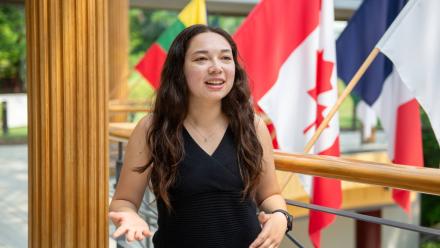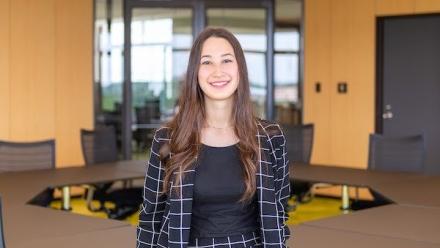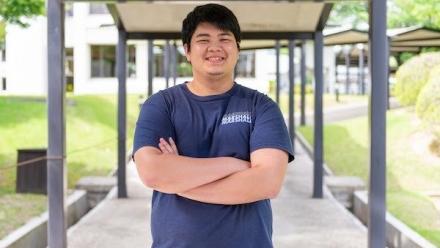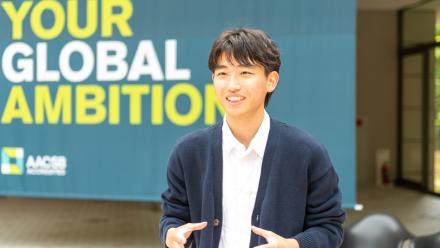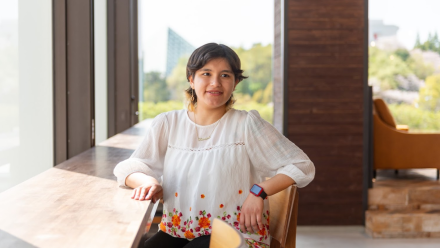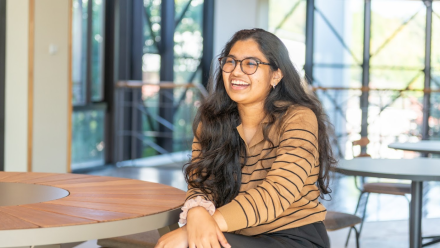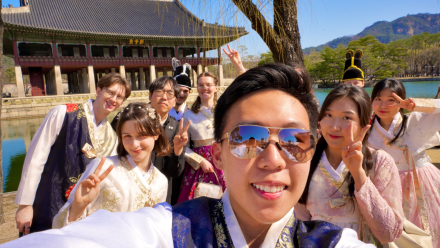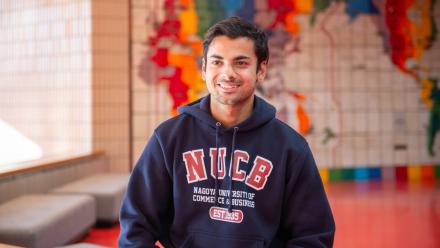Matvei (Jönköping University), a welcomed addition to our academic community, chose NUCB for his exchange experience during the 2023 Fall Semester. In our interview, he opened up about his life in Japan. From adapting to the academic environment to immersing himself in the local culture, Matvei's insights provide a valuable perspective for both our university and fellow students.
How do you stay motivated and focused on your studies in a new and different environment?
I believe it's crucial to begin with setting goals. Each individual should categorize their goals into short and long-term objectives. It's essential to recognize that every day in a new environment brings various challenges, and it's important to address each one step by step without rushing. Consequently, each day should be seen as a celebration, marking the achievement of short-term goals. Simultaneously, the culmination of these smaller goals contributes to the realization of larger life objectives. Personally, my aspiration is to live in Sweden, establish a career, and start a family. This perspective is applicable to university studies as well. Every completed assignment, group project, or exam serves as a foundation for personal growth, resulting in the acquisition of new knowledge and the enhancement of skills that can benefit me in my future career. Despite facing diverse environments, the ability to adapt to conditions is crucial for progressing in life. I firmly uphold these principles and constantly remind myself that the incremental achievements in my daily university studies will invariably lead to greater success in the future.
How do you manage your budget and finances while studying in Japan?
Undoubtedly, relocating to a new country, particularly Japan, raises questions about budgeting. Prior to arriving in the country, I conducted research on the living costs in Japan. To my surprise, the cost of living was lower than in Europe, a definite advantage for any university student planning to embark on an exchange semester in Japan. However, I encounter challenges in establishing a specific budget for my life here, as my spending varies daily. For instance, I may spend nothing one day, only to embark on a trip to Tokyo the next day, engage in shopping, visit museums, and dine at restaurants. Japan provides a unique opportunity for foreigners to allocate funds towards experiences they might not otherwise consider. The various souvenirs, attractions, events, and other offerings is highly appealing to me, serving as motivation to spend more on these experiences.
What is your favorite aspect of Japanese culture, and how has it influenced you?
One of the most unexpected things for me personally is how most Japanese people I've met here are very kind and respectful. This level of positive behavior wasn't something I expected from people outside of Japan. Over time, I've grown accustomed to these aspects of the Japanese people's character, and now I anticipate the same attitude wherever I go. I believe that this has changed the way I see society as a whole, and I have more faith that good people exist on this earth, increasing my trust levels towards strangers. I will do my best to carry these positive traits with me and act in the same way. Additionally, I'd like to teach my friends about these cultural features so that they can also adopt them.
What are some misconceptions you had about Japan that were changed after living there?
The most common misconception about Japan is that this country lives in the future. Undoubtedly, Japan boasts numerous futuristic elements such as Shinkansen trains, advanced payment systems, and high-tech home appliances. However, you may find yourself riding a Shinkansen one day, covering cities in mere minutes, and the next day, using cash to purchase a food ticket from a machine at a ramen place. This kind of stark contrast deeply fascinates me. Adapting to such a drastic difference can be challenging and, at times, confusing, leading me to wonder why certain things haven't been innovated, especially when they seem so simple in Europe. Nevertheless, I believe that this technological contrast adds a unique dimension to the travel experience in Japan, one that no other country can quite replicate.
Can you describe a typical day in your life as a student at NUCB?
My typical day kicks off around 6:30 in the morning when I wake up for the morning lecture. Given that my week is typically filled with morning classes, an early start is essential. I begin by having breakfast, following my skincare routine, getting ready, and packing my bag with essentials like my computer and charger before leaving my dormitory. Living in Meito means my commute to the university campus is quite a journey. I walk to the metro, switch lines, and take a bus, totaling approximately an hour each day.
Upon reaching the university, my first stop is 7 Eleven, where I indulge in a treat for the day and grab a drink. I appreciate the variety of snacks and food available at convenience stores and know I'll miss them once I return to Europe. Following this, I attend classes, socialize with friends, and focus on the lectures. At midday, I head back home using the same route and prepare lunch.
Afterwards, I unwind by watching some series on Netflix or taking a short nap. In the evening, I dedicate time to reading cases for the next day and working on assignments. If needed, I manage household chores like laundry and room cleaning. I then enjoy some matcha tea while catching up with my parents over the phone about the day. As the night progresses, I take a relaxing hot shower before calling it a day and going to bed.
How do you plan to apply the knowledge and skills you've gained at NUCB in your future career or studies?
The case system implemented at NUCB has equipped me with valuable insights into specific subjects and taught me how to navigate various situations that different companies have encountered. I eagerly anticipate applying the knowledge gained in my future marketing career, with the goal of joining a Swedish company. The emphasis on Asia and Japan at NUCB has uniquely positioned me to understand the intricacies of the Asian business environment, enabling me to make informed decisions in crafting marketing campaigns for Asian markets. This skill set could potentially make me a valuable asset for Swedish companies seeking to diversify their targeting strategies and expand into Asian countries.

 Download
Download
 Infosession
Infosession
 Application
Application
 Open Campus
Open Campus
